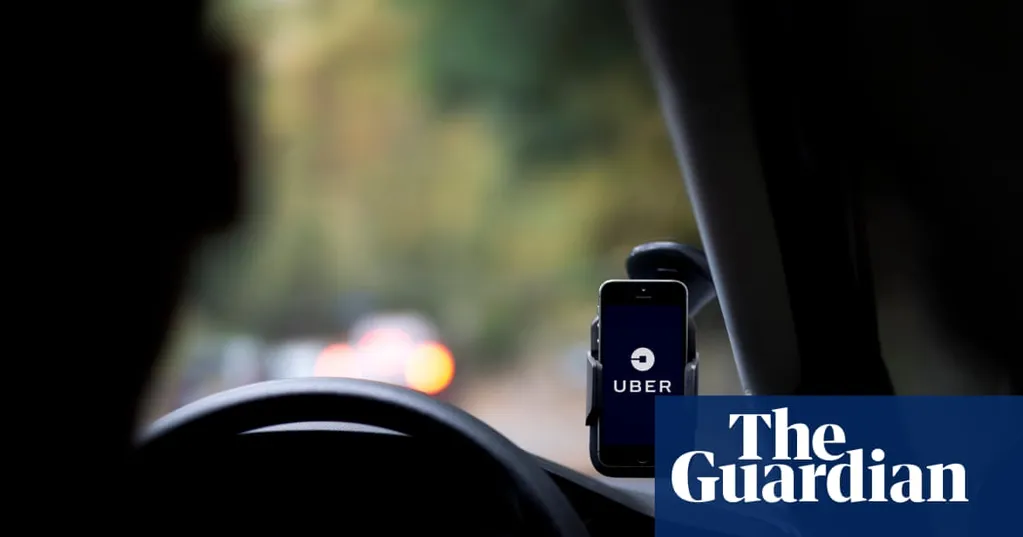More than 800,000 ride-hailing drivers in California will soon be able to join a union and negotiate for higher wages and better benefits under a measure signed Friday by the governor, Gavin Newsom.
Supporters said the new law will open a path for the largest expansion of private-sector collective bargaining rights in the state's history. The legislation is a significant compromise in the years-long battle between labor unions and tech companies.
California is the second state where Uber and Lyft drivers can unionize as independent contractors; Massachusetts voters passed a ballot referendum in November allowing unionization, while drivers in Illinois and Minnesota are pushing for similar rights.
"Donald Trump is holding the government hostage and stripping away worker protections," Newsom said in a statement, referring to the estimated 750,000 federal employees who are furloughed as a result of the first federal government shutdown since 2018, with the administration planning to implement another sweeping wave of cuts.
"In California, we're doing the opposite: proving government can deliver - giving drivers the power to unionize while we continue our work to lower costs for families. That's the difference between chaos and competence," he added.
The new law is part of an agreement made in September among Newsom, state lawmakers and the Service Employees International Union, along with rideshare companies Uber and Lyft. In exchange, Newsom is expected to sign a measure supported by Uber and Lyft to significantly cut the companies' insurance requirements for accidents caused by underinsured drivers.
Lyft CEO David Risher said in September that the new insurance rates are expected to save the company $200m and could help reduce fares.
Uber and Lyft fares in California are consistently higher than in other parts of the US because of insurance requirements, the companies say. Uber has said that nearly one-third of every ride fare in the state goes toward paying for state-mandated insurance.
Labor unions and tech companies have fought for years over drivers' rights. In July of last year, the California supreme court ruled that app-based ride-hailing and delivery services like Uber and Lyft can continue treating their drivers as independent contractors not entitled to benefits like overtime pay, paid sick leave and unemployment insurance.
A 2019 law mandated that Uber and Lyft provide drivers with benefits, but voters reversed it at the ballot box in 2020 with a measure known as Proposition 22. Uber and Lyft spent more than $200m in their efforts to bar app-based workers from being classified as traditional employees. Drivers and labor groups opposed Prop 22, saying it would allow companies to sidestep their obligations to provide benefits and standard minimum wages to their workers even as they make billions.
The collective bargaining measure now allows rideshare workers in California to join a union while still being classified as independent contractors and requires gig companies to bargain in good faith over issues such as driver deactivations, paid leave and earnings. The new law doesn't apply to drivers for delivery apps like DoorDash.
"Trump is gutting workers' fundamental right to come together and demand fair pay and treatment," said Tia Orr, executive director of SEIU California. "But here in California, we are sending a different message: when workers are empowered and valued, everyone wins. Shared prosperity starts with unions for all workers."
The insurance measure will reduce the coverage requirement for accidents caused by uninsured or underinsured drivers from $1m to $60,000 per individual and $300,000 per accident.
The two measures "together represent a compromise that lowers costs for riders while creating stronger voices for drivers - demonstrating how industry, labor, and lawmakers can work together to deliver real solutions," Ramona Prieto, head of public policy for California at Uber, said in a statement.
The new law arrives as Uber and Lyft continue negotiating a settlement with California and the cities of San Francisco, Los Angeles and San Diego, which sued the companies for allegedly withholding wages from thousands of drivers before Proposition 22 took effect.
Rideshare Drivers United, a Los Angeles-based advocacy group of 20,000 drivers, said the collective bargaining law isn't strong enough to give workers a fair contract. The group wanted to require the companies to report their data on pay to the state.
New York City drivers' pay increased after the city started requiring the companies to report how much an average driver earns, the group said.
"Drivers really need the backing of the state to ensure that not only is a wage proposal actually going to help drivers,but that there is progress in drivers' pay over the years," said Nicole Moore,president of Rideshare Drivers United.
